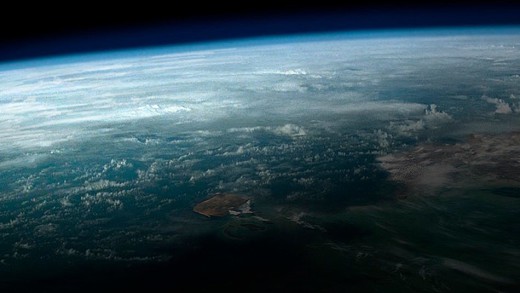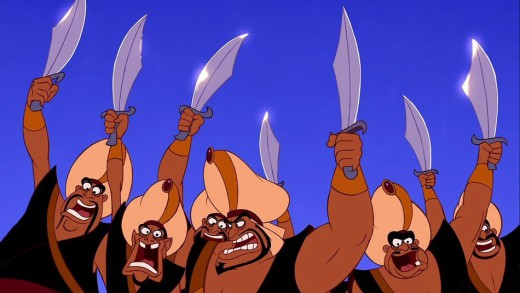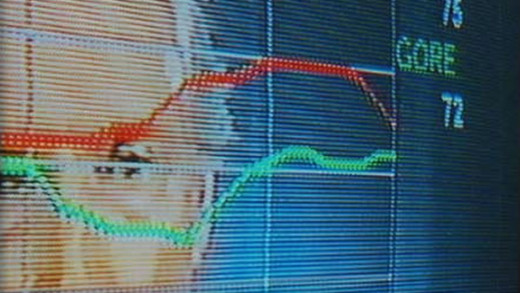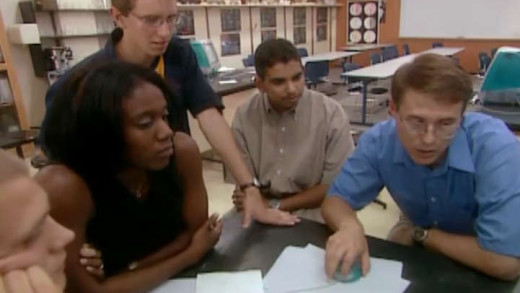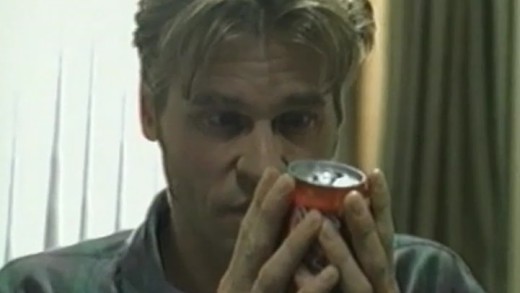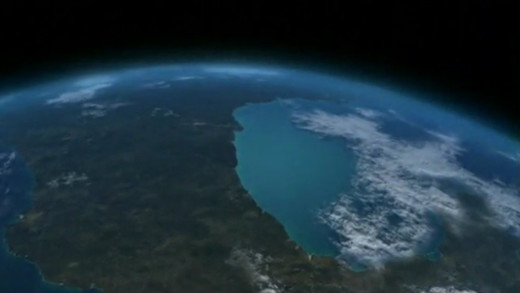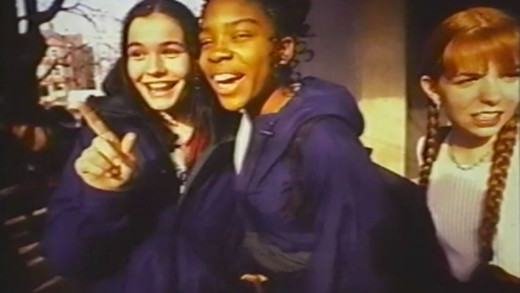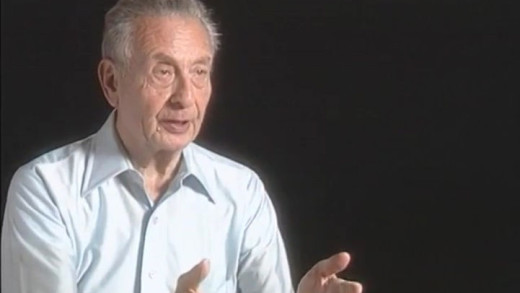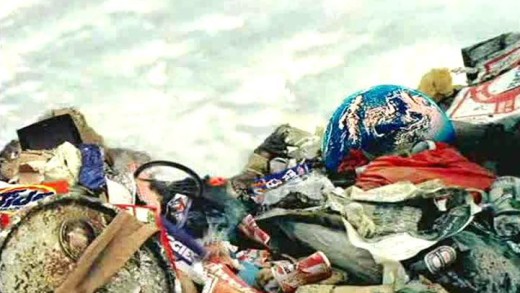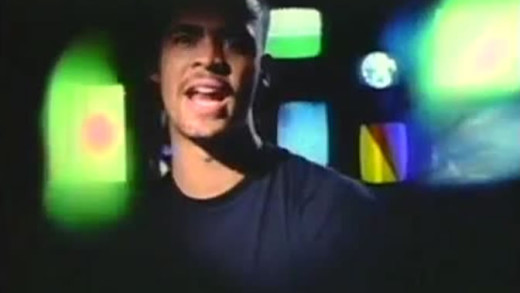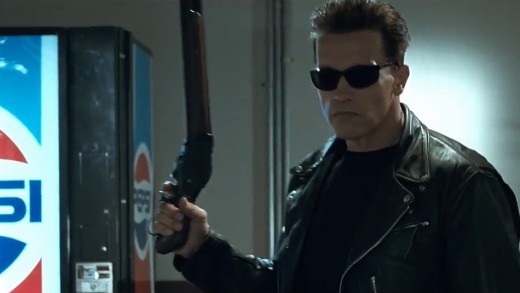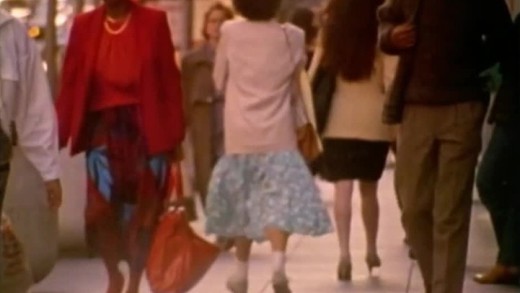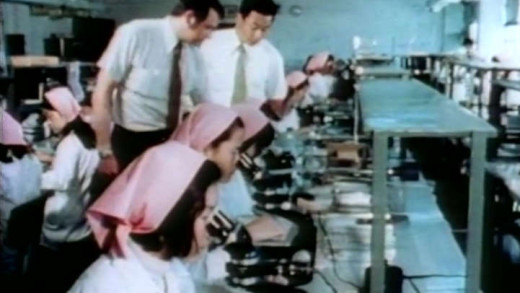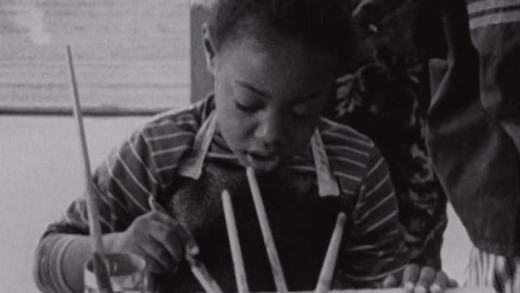The Planet is a stylised observational video commentary that brings together an overview of the many global changes set about by industrial civilisation. Viewed through the myriad connections between consumerism and the false notion of a perpetually expanding economy on a finite planet, the film peers across the globe to reveal systemic exploitation; species extinction driven by industrial agriculture, logging, mining, manufacturing, pollution, the age of oil and plastic, etc; climate change; carrying capacity and population growth; while also positing that we—as in you and me—can do something, anything, to stop the destruction.
What if you live in the most destructive culture ever to exist? What if that culture refuses to change? What do you do about it? Derrick Jensen, the author of Endgame responds to these imperative questions and details how industrial civilisation and the persistent and widespread violence it requires is ultimately unsustainable—and what to do about it. Jensen weaves together history, philosophy, environmentalism, economics, literature and psychology to produce a powerful argument that demands attention...
The Virgin Trade investigates the growing phenomenon of Western sex tourism, with a focus on Thailand. The film travels through red light districts and the starry-eyed advertising propaganda that targets Western men to reveal the mechanics of the sex industry as it operates throughout Asia. What is revealed is a world entangled by money which leads to abuse, demand which perpetuates the culture, consumerism which drives demand, and poverty which drives the need. What happens when countries and cultures are ravished like this with Western sex tourism? Are parents selling their children into brothels to finance lavish Western lifestyles? Or do orphans fill the demand--smuggled into prostitution after disasters like the tsunami of 2004? The Virgin Trade dangles the questions of numbers while still affirming widespread exploitation and deceit. The interconnectedness, scale and depth of the problem, as well as what is still hidden or left unsaid, is left up to the viewer...
Following on from the series Planet Earth which looked at various forms of life across the globe, Planet Earth -- The Future highlights the issues of conservation and the future of the environments and species featured in the Planet Earth series. Using interviews with the film-makers and eminent figures from the fields of science, conservation, politics, and theology, the series poses questions around the effectiveness of the environmental movement, and the future of the planet. A lot needs to change in order to ward off catastrophe...
Reel Bad Arabs: How Hollywood Vilifies a People analyses how the storytelling of the West has crafted and perpetuated a false stereotypical image of Arabs and Arab culture since the early days of American silent cinema, up to the present with the biggest Hollywood blockbusters. The film shows how the persistence of these stories over time has served to powerfully naturalise and perpetuate prejudice toward Arabs, Arab culture and the Middle East in general, and how this in turn also serves to reinforce the harmful narratives of dominant culture which dehumanise Arabs as a people and negate the visceral political acts carried out against them by the West for decades. By inspiring critical thinking about the social, political, and basic human consequences of leaving these caricatures unexamined, Reel Bad Arabs challenges viewers to recognise the urgent need for counter-narratives to do justice to the diversity and humanity of Arab people, to share the truth about the stories of their lives and their history.
Moving Beyond Myth focuses on the sexual dilemmas and difficult life choices young girls face as they come of age in contemporary American culture. Challenging long-held myths about girlhood, the film draws on the insights of girls themselves to explore and shed light on their actual lived experience as they navigate an increasingly hyper-sexualized society. The voices of a diverse range of girls are supplemented with accessible analysis from leading experts on sexuality and society.
Spin the Bottle critiques the role that popular culture plays in glamorising excessive drinking and high-risk behaviour, in contrast to the ways alcohol affects the lives of real young men and women in reality. This film decodes the power and influence of seductive media images to show how they shape personal identity when linked to the use of alcohol. Nowhere is this link more apparent than on America's college campuses. By exploring the party scene, Spin the Bottle also shows the difficulties young people have in navigating a cultural environment saturated with messages about gender and alcohol. Interviews with health professionals provide a clear picture of how drinking impacts student health and academic performance, but it is the students' own experiences and reflections that tell the real story behind alcohol's alluring public and cultural image.
Each year, legions of ad people, copywriters, market researchers, pollsters, consultants, and even linguists spend billions of dollars and millions of hours trying to determine how to persuade consumers what to buy, whom to trust, and what to think. Increasingly, these techniques are migrating to the high-stakes arena of politics, shaping policy and influencing how Americans choose their leaders. In The Persuaders, renowned media scholar Douglas Rushkoff explores how the cultures of marketing and advertising have come to influence not only what we buy, but also how we view ourselves and the world around us. The Persuaders draws on a range of experts and observers of the advertising and marketing world, to examine how, in the words of one on-camera commentator, “the principal of democracy yields to the practice of demography,” as highly customised messages are targeted to individuals using technology and fine-tuned social engineering techniques.
Race: The Power of an Illusion is a three-part series that investigates the idea of race in society, science and history. It navigates through myths and misconceptions, and scrutinises some of the assumptions that are taken for granted. The division of people into distinct categories--"white," "black," "yellow," "red," and so on--has become so widely espoused and so deeply rooted, that most people do not think to question its veracity. This series challenges the myth of race as biology, and traces its notions to the 19th century, demonstrating how race has a continuing negative impact through institutions and social policies.
Did you know that the legal system recognises a corporation as a person? What kind of 'person' is it then? What would happen if it sat down with a psychologist to discuss its behaviour and attitude towards society and the environment? Explored through specific examples, this film shows how and why the modern-day corporation has rapaciously pressed itself into the dominant institution of our time, posing big questions about what must be done if we want a equitable and sustainable world. What must we do when corporations are psychopaths?
The Disney Company's massive success in the 20th century is based on creating an image of innocence, magic and fun for kids. Its animated films in particular are almost universally lauded as wholesome family entertainment, enjoying massive popularity among children and endorsement from parents and teachers around the world. This film takes a close look at Disney, to analyse the world these films create for kids and the stories they tell and propagate; contextualised by the cultural pedagogy of Disney's conglomerate mass-media control and vast corporate power. Including interviews with social commentators, media scholars, child psychologists, kindergarten teachers, multicultural educators, college students and children, Mickey Mouse Monopoly provokes audiences to confront assumptions about an institution that is virtually synonymous with childhood pleasure.
To many in both business and government, the triumph of the self is the ultimate expression of democracy, where power is truly moved into the hands of the people. Certainly the people may feel they are in charge, but are they really? The Century of the Self tells the untold and controversial story of the growth of the mass-consumer society. How is the all-consuming self created, by whom, and in whose interest?
They spend their days sifting through reams of market research data. They conduct endless surveys and focus groups. They comb the streets, the schools and the malls, hot on the trail of the "next big thing" that will snare the attention of their prey -- a market segment worth an estimated $150 billion a year. They are the merchants of cool: creators and sellers of 'popular culture' who have made teenagers the hottest consumer demographic...
Behind the Screens explores how Hollywood movies have largely become vehicles for the ulterior motives of advertising and marketing by the studios and media owners, rather than genuine storytelling or simple entertainment in their own right. By showing examples from popular movies such as Wayne's World, Forrest Gump, The Lion King, Summer of Sam, and Toy Story, this documentary demonstrates how this trend toward hypercommercialism—through product placement, tie-ins, merchandising and cross-promotions—comes to define the modern movie. What are the problems with this, as well as the cultural and social impacts? Combined with analysis from film scholars, critics, political economists, and an Oscar-nominated screenwriter, Behind the Screens presents accessible arguments to these questions.
Over three programmes David Attenborough travels from Kenya to California to investigate the contesting claims about the current state of our planet. In the first programme he examines the extinction crisis, measuring the disappearance of some species against the mass of life that still remains undiscovered. Then the crisis is explored further by looking at the root causes, where finally, the last programme asks: What are the possible courses of action open to us to sustain the future of life?
War Zone is a short film about street harassment. Filmmaker Maggie Hadleigh-West walks crowded urban streets armed with a camera and microphone, trailed by one or two women also with cameras. Whenever a man harasses her, with ogling or words, she turns the camera on him, moves in close, and questions his behaviour. The questions are not usually for dialogue but more for making him as uncomfortable as he's made her. More than 50 such encounters are included: the men react with bravado, embarrassment, or anger. None apologise. Interspersed are the filmmaker's voice-over stories of growing up and dealing with men, as well as interviews with several women who talk about how they handle similar street harassment and what they feel about it. What does it feel like to be a woman on the street in a cultural environment that does nothing to discourage men from heckling, following, touching or disparaging women in public spaces?
This film examines the forces of culture influencing young people's decisions about sex: media, family, religion, alcohol, and so on. By examining the cultural environment in this way, this film becomes a tool for facilitating informed discussions about the myriad influences facing young people. Filmmaker Dan Habib features the stories of eight young people, ages 16-24, and weaves them with observations about the messages young people get from popular culture.
I Am A Man is a film that links everyday black men from various socioeconomic backgrounds with some of Black America's most progressive academics, social critics and authors to provide an engaging, candid dialogue on black masculine identity in North American culture.
Through exploring deep questions about the way mainstream media is organised and perpetuated in concert with technological development, media expert George Gerbner delivers a solid indictment of the way the so-called "information superhighway" is now being constructed. Following on from his solid work looking at the impacts of television on society, Gerbner turns to examining emerging technologies like V-chip and the way they interface with globalisation. This film urges the viewer to struggle for democratic principles in this emerging technoculture.
Focusing directly on the world of commercial images, Advertising and the End of The World asks some basic questions about the cultural messages emanating from advertising: Do these messages deliver what they claim—happiness and satisfaction? Can we think about our collective as well as our private interests? And, can we think long-term as well as short-term?
Television has colonised human storytelling--not only has creating and passing on culture been usurped by television and corporate media, today dominant culture is television and corporate media. The Electronic Storyteller outlines these changes and shows the cumulative impacts that television and mass media has on the way we think about ourselves and how we construct views of the world around us. With a focus on the stories of gender, class, and race, The Electronic Storyteller delivers an analytical framework to understand the pervasive forces behind what is at stake in the new world of saturated media and controlled imagery...
Is the human population going to outstrip the Earth's food supply? The effects of modern agriculture not only lead to a short term food surplus which quickly slipped as population boomed, but agriculture itself causes huge environmental problems such as soil erosion, salinity and chemical pollution—all further illustrating an impossible system in perpetuity. Food or Famine looks at projects in North America, Chile, Indonesia, Africa and India which are participating in a worldwide movement to return to local food growing methods based on the land and healthy ecological principles. The film also examines the worldwide imbalance between food consumption and production, stoking the need to confront the mounting challenges ahead...
By addressing the question of violence and the media from a number of different angles, The Killing Screens presents a comprehensive view on how to think about the effects of the media environment in new and complex ways. In contrast to the relatively simplistic behaviourist model, that "media violence causes real-world violence," renowned media scholar and researcher George Gerbner shows us how to think about the psychological, political, social, and developmental impacts of growing up and living within a cultural environment of pervasive violent imagery and narratives. What are some of the impacts of this culture and what can be done about it?
The Prize: The Epic Quest for Oil, Money, and Power is an 8-part series based on Daniel Yergin's book by the same name, that captures the panoramic history of the largest industry in the world and traces it's changing face over the decades. Each episode in the series focuses on an era of oil, from beginning to today; while examining the connections and ramifications of an industry that literally transformed global political and economic landscapes--while continuing to make its mark...
Dear Lisa
The filmmaker questions her sister, herself and others about the dreams and hopes they had growing up as girls in contrast to the reality they now face as women. Interviewees include a former Miss California contestant, a judge, a banker, an electrician, a secretary, and adolescent girls. They talk about childhood, athletics, careers, motherhood, body image, sexual assault and self-esteem. Made nearly 30 years ago, this film documents a growing awareness of issues affecting women. But have things changed today?
Controlling Interest is one of the first documentary films to provide a critical analysis on the growth of multinational corporations, and their impacts on people and the environment. Upon its release, Controlling Interest quickly became a standard audio-visual text for those concerned about the growing impact of multinational corporations, examining how the ever-increasing concentration of money and power affects employment in the United States, shapes patterns of development across the world, and influences foreign policy. This is the film that helped kick-off the anti-globalisation movement. Remarkably candid interviews with business executives provide a rare glimpse of the reasoning behind corporate global strategy, and the never-ending search for resources, ever-cheaper labour, and the commodification of life. The film documents the impact of corporate decisions on people around the world, including how "freedom" has come increasingly to mean the freedom of global corporations to operate without restriction. Some of the case studies include Massachusetts' declining machine tool industry, Brazil's "economic miracle," and Chile before and after the 1973 coup.
As the first film to emerge from the women's movement in the early 1970s in the United States, Growing Up Female focuses on the socialisation of women at the time, traversing cultural themes through the personal stories of six women and girls. By capturing the way women were viewed by society, men, and themselves, Growing Up Female documents the female experience from a female perspective.
